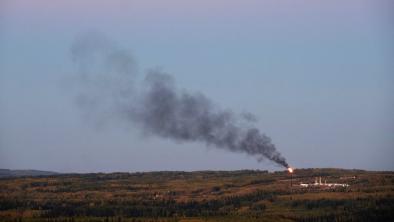B.C. Energy Minister optimistic Site C construction will begin in summer
Globe and Mail

Two weeks before farmers and First Nations press the courts to block the Site C dam from transforming a thriving stretch of river in northeastern British Columbia, the minister responsible has boldly forecast away any obstacles.
Energy Minister Bill Bennett told a Vancouver Board of Trade gathering on Thursday he’s confident legal objections won’t stymie the multibillion-dollar hydroelectric project.
“As far as I’m concerned, they’re starting construction soon — in the summer,” he told the crowd of about 250 business people, many representing the mining sector, though declining to circle a specific date.
“I don’t believe that there’s going to be any — I touch wood when I say this, being a lawyer you never know what the courts are going to do — but, I don’t think there’s going to be any injunctions that are going to stop construction of this project.”
But opposition has dogged the project over the decades it has been a long-range energy option, and it has only heightened during the seven recent years it’s been formally in the works.
Two of several court challenges are also on the doorstep, with cases launched by the Peace Valley Landowners Association and Treaty 8 First Nations. The matters are set to be heard in B.C. Supreme Court on April 20 and 23, respectively, according to the Wilderness Committee.
Plans for the $8.8-billion dam involve flooding a portion of the Peace River and creating an 83-kilometre-long reservoir. The project is expected to produce 1,100 megawatts annually once completed by 2024, enough to power 450,000 homes.
After his speech, Bennett slightly retreated from his assertion by telling reporters he’s “cautiously optimistic” in his estimate that shovels will hit dirt this summer.
“I just don’t see where anyone has a good argument that we shouldn’t build this project,” he said, adding he wouldn’t comment on any specific legal actions.
But Joe Foy of the Wilderness Committee, which supports the fast-approaching legal challenges, called it mind-blowing that Bennett would “bumble forward” with the project.
“But now we approach court dates, and in my view, Mr. Bennett and the government he represents have not made the case for the need for this project,” he said.
“We can only hope the courts see things the way we see it.”
More than 5,500 hectares of land, more than half of it agricultural, will be flooded, according to the dam’s environmental impact statement. First Nations heritage sites will also be washed out, while up to 20 families including lifelong ranchers would be forced to move.
This Canadian Press story also appeared in the Prince George Citizen, My Sask, Tricity News & 680 News.


